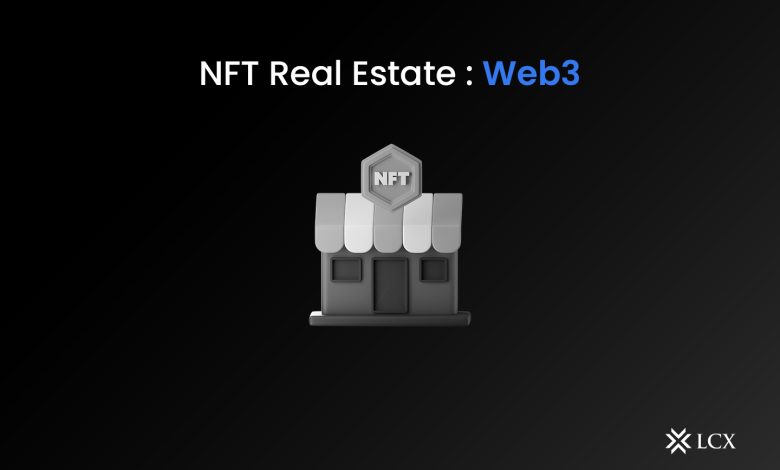NFTs in Real Estate: A New Frontier

- Understanding NFTs and their impact on the real estate industry
- Exploring the potential benefits of using NFTs in real estate transactions
- Challenges and opportunities of integrating NFTs into the real estate market
- Case studies of successful NFTs in real estate deals
- Regulatory considerations for NFTs in the real estate sector
- The future of NFTs in revolutionizing the way we buy and sell property
Understanding NFTs and their impact on the real estate industry
NFTs, or non-fungible tokens, have been making waves in the real estate industry due to their potential to revolutionize the way properties are bought, sold, and traded. These digital assets represent ownership of a unique property or piece of land on the blockchain, providing a secure and transparent way to transfer ownership without the need for intermediaries.
One of the key impacts of NFTs on the real estate industry is the ability to fractionalize ownership of properties. This means that multiple investors can own a share of a property, making real estate investment more accessible to a wider range of individuals. Additionally, NFTs can streamline the buying and selling process by reducing the need for paperwork and speeding up transactions.
Furthermore, NFTs can also be used to represent virtual real estate in the form of digital assets such as virtual worlds, metaverses, and other online spaces. This opens up new opportunities for developers, investors, and users to participate in the growing virtual real estate market.
Exploring the potential benefits of using NFTs in real estate transactions
Exploring the potential advantages of incorporating Non-Fungible Tokens (NFTs) into real estate transactions can offer a variety of benefits for both buyers and sellers. NFTs have the ability to revolutionize the way properties are bought and sold, providing a secure and transparent method of transferring ownership.
One of the key advantages of using NFTs in real estate transactions is the ability to streamline the process. By digitizing property ownership through NFTs, the need for lengthy paperwork and manual verification processes can be significantly reduced. This can lead to faster transactions and lower costs for both parties involved.
Additionally, NFTs can provide a new level of security and transparency in real estate transactions. Each NFT is unique and cannot be replicated, making it nearly impossible for fraud or forgery to occur. This added layer of security can help build trust between buyers and sellers, ultimately leading to smoother transactions.
Furthermore, NFTs can also offer increased liquidity in the real estate market. By tokenizing properties, owners have the ability to sell fractions of their property, allowing for more diverse investment opportunities. This can attract a wider range of investors who may not have the capital to purchase an entire property outright.
In conclusion, the potential benefits of utilizing NFTs in real estate transactions are vast. From streamlining the process and enhancing security to increasing liquidity in the market, NFTs have the potential to revolutionize the way properties are bought and sold. As the technology continues to evolve, it will be interesting to see how NFTs shape the future of real estate transactions.
Challenges and opportunities of integrating NFTs into the real estate market
Integrating NFTs into the real estate market presents both challenges and opportunities for industry players. One of the main challenges is the lack of regulatory clarity surrounding NFTs, which can make it difficult for real estate professionals to navigate this new technology. Additionally, there are concerns about the security and authenticity of NFTs, as they are susceptible to hacking and fraud.
On the other hand, there are several opportunities that come with integrating NFTs into the real estate market. NFTs can provide a new way for investors to diversify their portfolios and gain exposure to the real estate market. They also offer a more efficient way to buy, sell, and trade real estate assets, as transactions can be completed quickly and securely on the blockchain.
Overall, the integration of NFTs into the real estate market has the potential to revolutionize the way properties are bought and sold. However, industry players must be mindful of the challenges and risks associated with this new technology in order to fully capitalize on the opportunities it presents.
Case studies of successful NFTs in real estate deals
There have been several successful NFTs in real estate deals that have caught the attention of investors and industry experts alike. These case studies demonstrate the potential for NFTs to revolutionize the way real estate transactions are conducted.
- One notable example is the sale of a luxury penthouse in Miami Beach as an NFT. The property was tokenized and sold to a buyer who now holds the digital rights to the penthouse. This innovative approach to real estate ownership has opened up new possibilities for fractional ownership and investment in high-end properties.
- Another successful NFT in real estate deal involved the tokenization of a commercial building in New York City. Investors were able to purchase shares of the building through NFTs, allowing them to profit from rental income and property appreciation. This use of blockchain technology has made real estate investment more accessible to a wider range of individuals.
- Additionally, a historic landmark property in London was recently tokenized as an NFT, allowing art collectors and investors to own a piece of the iconic building. This unique approach to real estate ownership has generated significant interest in the art and real estate communities, showcasing the potential for NFTs to bridge the gap between the two industries.
These case studies highlight the diverse applications of NFTs in real estate and the opportunities they present for investors, property owners, and developers. As the technology continues to evolve, we can expect to see even more innovative uses of NFTs in the real estate industry.
Regulatory considerations for NFTs in the real estate sector
When it comes to regulatory considerations for NFTs in the real estate sector, there are several important factors to keep in mind. As non-fungible tokens continue to gain popularity in the real estate industry, it is crucial to understand the legal implications and regulatory requirements that come with using NFTs for property transactions.
One of the key regulatory considerations for NFTs in real estate is property rights. Ownership rights and title transfers are essential aspects of real estate transactions, and NFTs must comply with existing property laws to ensure legal validity. Smart contracts can be used to automate property transfers and ensure compliance with regulations.
Another regulatory consideration is consumer protection. Buyers and sellers need to be protected from fraud and misrepresentation in NFT transactions. Regulators may require disclosures and transparency in real estate NFT deals to prevent unethical practices.
Additionally, tax implications are an important regulatory consideration for NFTs in real estate. Capital gains taxes and property taxes may apply to NFT transactions, and property owners must comply with tax laws to avoid penalties. Consulting with a tax professional is recommended to understand the tax implications of NFT real estate transactions.
The future of NFTs in revolutionizing the way we buy and sell property
NFTs have the potential to revolutionize the real estate industry by transforming the way properties are bought and sold. These digital assets provide a unique way to represent ownership of real-world properties on the blockchain, making transactions more secure and transparent.
One of the key advantages of using NFTs in real estate is the ability to fractionalize ownership. This means that multiple investors can purchase shares of a property, making it more accessible to a wider range of buyers. Additionally, NFTs can streamline the buying and selling process by reducing the need for intermediaries such as real estate agents and lawyers.
By leveraging blockchain technology, NFTs can also help to eliminate fraud and ensure that property records are accurate and up to date. This increased level of transparency can give buyers more confidence in their investments and help to reduce disputes over property ownership.
As the real estate industry continues to evolve, NFTs are poised to play a significant role in shaping the future of property transactions. By embracing this new technology, buyers and sellers can benefit from a more efficient, secure, and transparent process that has the potential to revolutionize the way we buy and sell property.



